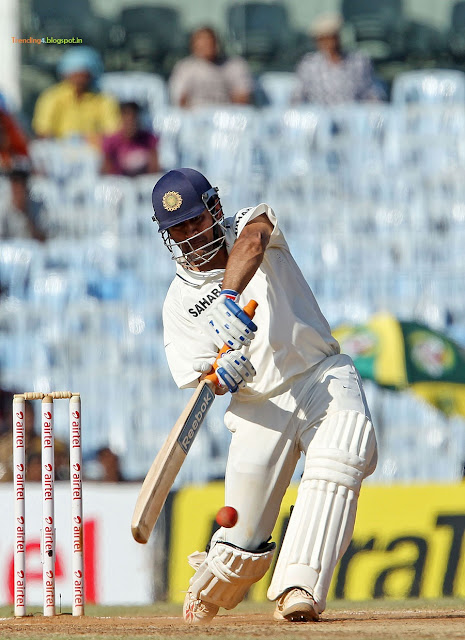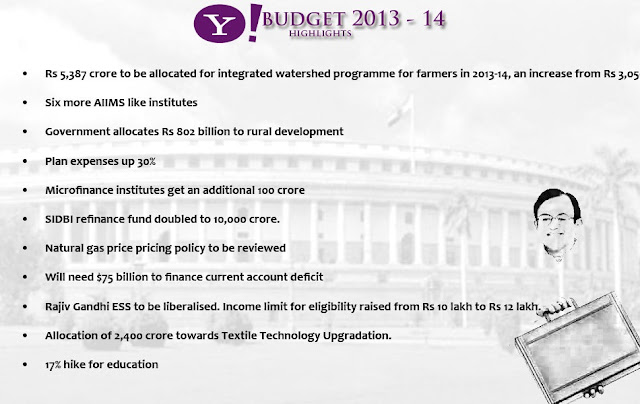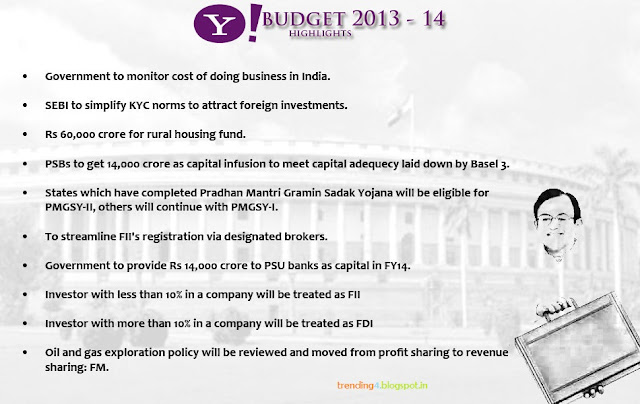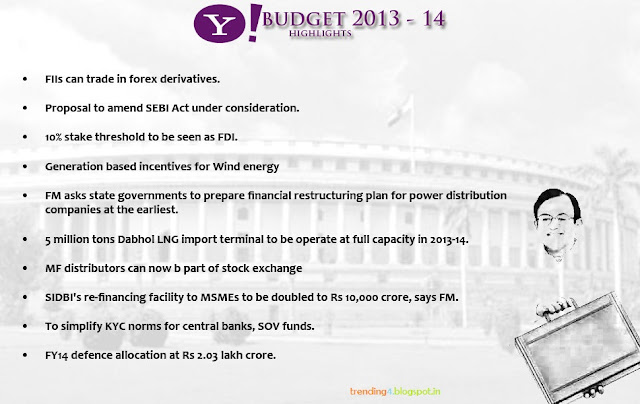'The Attacks of 26/11' Movie Review.'The Attacks of 26/11'
Latest News.'The Attacks of 26/11'
film updates.'The Attacks of 26/11'
Photos. 'The Attacks of 26/11'
Pics.'The Attacks of 26/11'
Ram Gopal Varma.'The Attacks of 26/11'
Ratings.'The Attacks of 26/11' Movie Updates.'The Attacks of 26/11' Movie Review in detail.
'The Attacks of 26/11' Tweet Review: First day, first show
Direction: Ram Gopal Varma
Actors: Nana Patekar, Sanjeev Jaiswal, Atul Kulkarni
Rating: 3.5/5
The good news is that The Attacks of 26/11 is one of the
better films Ram Gopal Varma has made in recent years. The bad news is that
Varma's last few films were duds like Department and Bhoot Returns so the bar
is set very low.
In The Attacks of 26/11, Varma recreates Mumbai's tryst with
terror on November 26, 2008 when ten men came over in a boat and laid siege to
the city. More than 160 people died and over 300 were injured. It was one of
the worst terrorist attacks on Indian soil.
Nana Patekar playing joint commissioner of police Rakesh
Maria, narrates the events to an inquiry commission. He recounts
the 60 hours of horror as young, brain-washed men walked casually around South
Mumbai indiscriminately pumping bullets in to men women and children in the Taj
hotel lobby, the Chhatrapati Shivaji Terminus, Leopold Cafe and other
locations. The Mumbai police struggled valiantly. Eventually the NSG Commandos
have to be called in.
This film tells us little that we don't already know. Like
Kathryn Bigelow in Zero Dark Thirty, Varma is trying to give us
boots-on-the-ground experience.
.jpg) |
| 'The Attacks of 26/11' |
But unlike Bigelow, he is unable to create a visceral feel
or provide new insights. The action is broken by the commissioner's deposition
to the inquiry commission, where half a dozen men sit impassively. Varma relies
too much on bullets in slow motion and gore so we see a man's neck being
sliced, another's brain exploding with a bullet and blood spread so thickly
that people slip in it.
All of which is based in truth but the fact is that most of
us have already been through this harrowing experience via live television
coverage and at some point, you have to ask; what do I get in return for
putting myself through this again? And the answer is not much.
In a few places, The Attacks of 26/11 is startling. The
tragic absurdity of constables fighting heavily armed terrorists with stones
and lathis hits you.
Nana Patekar, speaking with unduly affected pauses, has a
few moments of power and eloquence, especially toward the end when he explains
the real meaning of Islam.
But mostly, the film is plodding. Varma insists on
bludgeoning background music and the terrorists remain faceless caricatures.
Even Ajmal Kasab, who is the only one fleshed out to some
extent, is sketchy and simplistic.
The Attacks of 26/11 is a powerful subject watered down by
ineffective story-telling. This could have and should have been so much more.
Star cast: Atul Kulkarni, Nana
Patekar, Sanjeev Jaiswal, Ganesh Yadav
What’s Good: The cinematography, the lucid flow of the
narration, all performances.
What’s Bad: The style of narration suits the news-mode
more than the movie-mode.
Loo break: None.
Watch or Not?: For reliving the intensity of the
attacks and this well retold narration, boasting of power packed performances
by all, especially Nana Patekar, this one is definitely worth a watch.
It is not a story being told. Not an accident either. The
Attacks Of 26/11 is the set of terror attacks that hit Mumbai on
November 26, 2008 being produced into reel with some really appreciable
cinematography and mentionable performances.
Some native fishermen trek in to the Arabian looking for a
rare fish that is found only in deep water. After a while they realize they
might have entered international waters, in this case, that of Pakistan. In the
mean time they see a Pakistani trawler in distress. While the Indian fishermen
try to find out what is wrong, they’re faced with the terrorists coercing them
into helping the 10 terrorists to reach Mumbai. All fishermen are killed and
dumped at sea by the time they reach a shabby Mumbai port.
 |
| 'The Attacks of 26/11' Movie Pics |
Here on begins the communication between the terrorists and
the commoners. The 10 break into smaller groups and attack pre designed areas.
The back grounds of the terrorists are not focused upon much as are the little
details of the victims. There is often shown some moments of sanity and human
considerations on the part of Ajmal Kasab, played by Sanjeev Jaiswal, which
were suppressed without delay by his companion in the ruthless strikes.
The climax shows Kasab’s sentence to be hanged till death in
action. Crude scenes of violence make the movie unsuitable for the feeble
hearted. By the end of the movie the Joint Commissioner of Police, played by
Nana Patekar, Mumbai, passes with distinction in the departmental scrutiny and
goes to head the Anti Terrorism Squad.
The whole movie sees the Police in a very glorious light.
And the attacks are being narrated by Nana Patekar, giving a concrete feel to
the content. For the viewer, it is reliving the shame of religious
Nana Patekar (The Attacks of 26/11 Movie Stills)
The Attacks of 26/11 Review: Script Analysis
It is not much of a script. If you have been watching the
news during and post- 26/11 attacks, you probably know it all. Even the case
updates with regards to Ajmal Kasab will provide you much of the information
that Nana Patekar goes on the reveal. So may be for a movie based on a highly
spoken-about terrorist attack, The Attacks Of 26/11 fails to break any ice with
the script. But keeping that in mind, the movie has a fresh feel that makes you
want to sit through and view the very well sequenced script. Sunil Wadhwani
does commendable work at editing.
The Attacks of 26/11 Review: Star Performances
We miss Atul Kulkarni, though it makes sense to say his
performance was critically well placed. Nana Patekar, if we can ignore, at
times, unwanted voice modulation, does an amazing job of playing the
Joint Commissioner of Police to a city that did not even have time to recover
from an attack before having to face another one of similar or higher
magnitudes. About Sanjeev Jaiswal, his expressions are commendable
though his lines only match them up pretty late into the film.
The Attacks of 26/11 Review: Direction, Music &
Technical Aspects
 |
| 'The Attacks of 26/11' Ram Gopal Varma |
Director Ram Gopal Verma went to the scenes in November 2008
to do some 1st hand research. Well, we can see the effect. The film is
well directed keeping in mind it put together a massive number of abstract
characters. Cinematography however wins over anything else. Harshraj
Shroff and M. Ravichandran Thevar liven up the shades of the sky and the cityscape
to explain the pathos in vivid visuals. Vikram Biswas worked pretty well
keeping in mind the sound score of the movie set the theme of a psychological
thriller (from the terrorists’ point of view ), in combination with that of an
incidental narration.
The Attacks of 26/11 Review: The Last Word
We have seen it too many times, the quotes from the Holy
religious texts being explained to the wrongdoer after the deed is done. We see
it here again. That said, in the aftermath of the recent Hyderabad blasts; see
this just to know the larger picture.
Complete Review:
When Ram Gopal Varma went to visit the site of one of the
deadliest terrorist attacks in the history of Indian subcontinent, it was seen
as a publicity gimmick from a filmmaker who was going through a rough patch,
but Varma was serious about his recce.
The maverick director, who is known for films such as
'Satya', 'Company' and 'Sarkar', hasn't given good stories since many months,
so he is under pressure to come up with a well crafted film in the form of 'The
Attacks of 26/11', which is the dramatic reconstruction of the Mumbai terror
attacks of 2008.
The film features Nana Patekar as the Joint Commissioner of
Police while Atul Kulkarni will also be seen as an important character, however
all eyes would be on Sanjeev Jaiswal who is playing the character of Ajmal
Kasab. The recent death sentence of Kasab has increased the curiosity among the
audiences.
Good or bad, RGV is known for his bold and unconventional
approach towards filmmaking, so he is expected to throw a new light on the
events of 26/11.
10:15 AM: #Attacksof2611 is directed by Ram Gopal Varma and
is based on 2008 terror attacks of Mumbai.
10: 18 AM: #Attacksof2611 stars Nana Patekar, Atul Kulkarni
and Sanjeev Jaiswal, who is playing Ajmal Kasab.
10: 25 AM: The recent hanging of Ajmal Kasab has
increased the spectators' interest in #Attacksof2611.
10: 37 AM: RGV is expected to through a new light on the
events of Mumbai terror attacks through #Attacksof2611. What do you think?
10: 50 AM: RGV has tried to give a glimpse of the world of
terrorists in some of his earlier films but #Attacksof2611 directly deals with
terrorism.
10: 54 AM: Is the film going to feature the docudrama style
of filmmaking or will it be completely fictionalised? #Attacksof2611
11:00 AM: RGV's trademark camera angles are at play again.
Let's hope for good performances. #Attacksof2611
11:07 AM: You can love or hate him but you can't ignore RGV.
Unusual camera work would make this sure. #Attacksof2611
11:15 AM: The opening sequence brings a whole new world to
the spotlight. The attacks were planned long ago. #Attacksof2621
11: 25 AM: Sanjeev Jaiswal looks just perfect in the role of
Kasab. Metaphors are also working well. #Attacksof2611
11:28 AM: #Attacksof2611 is not for weak hearts. It needs
courage to digest such a brutal depiction of terrorism.
11:33 AM: Religious and social paradoxes are portrayed well
by RGV in #Attacksof2611. The film is very realistic.
11:35 AM: #Attacksof2611 is turning into a gripping tale.
Nana Patekar is doing a fantastic job.
11:38 AM: The narration technique used in #Attacksof2611 is
very effective. It generates strong and immediate emotions against terrorism.
11:40 AM: RGV is indeed a brave filmmaker. He has not kept
anything in heart, everything is on the screen. #Atracksof2611
11:45 AM: Parallel narratives show the mammoth scale of the
attacks in different spaces. #Attacksof2611
11:47 AM: RGV is not objective about violence this time. He
has taken a stand in these visuals. #Attacksof2611
11:50 AM: #Attacksof2611 is high on emotions. The terror
inside the human mind has been personified in Sanjeev Jaiswal.
11:52 AM: Everything from the strategy to the driving
ideology has been focussed in #Attacksof2611 so far.
11: 55 AM: One may miss the proper foregrounding of
#Attacksof2611 but the documentation of the events has been done well.
11: 57 AM: RGV is likely to face the similar questions about
the depiction of brutality as Kathryn Bigelow, but #Attacksof2611 justifies his
approach.
12:00 PM: So here it is. We were waiting for this only. The
loud chanting in the background. #Attacksof2611
12:02 PM: Was it the lack of training on part of the police
which made it easier for the terrorists? #Attacksof2611
12:05 PM: Clinical precision with which the #Attacksof2611
were done shows the amount of training that has been given to these terrorists.
12:07 PM: Such calm and composed terrorists can't be
prepared without the help of resourceful external agencies. #Attacksof2611
12:10 PM: #Attacksof2611 are the blots on the prestige of
intelligence agencies. It will remain one of their biggest failures.
12:15 PM: Had we reduced the reaction time, we could have
saved a lot of lives. #Attacksof2611
12:17 PM: Kasab to police: Jahannum ki aag se bachna hai toh
jihad karna hai. #Attacksof2611
12:20 PM: #Attacksof2611 has become a little dramatic. Kasab
goes the Shakti Kapoor way.
12:22 PM: RGV has carefully avoided the parts where he
needed to show the NSG operations. #Attacksof 2611
12:25 PM: The last thing the audience would like to see is
an abrupt ending after such a good build up. #Attacksof2611
12:30 PM: Avoid controversy and be with the popular notion
is RGV's mantra in #Attacksof2611.
12:35 PM: Nana Patekar has used a different mannerism in
#Attacksof2611. It is given to Nana to make him emerge as the hero of the
story.
12: 40 PM: The film reaches its last stage. The characters
take dramatic pauses. #Attacksof2611
12:42 PM: #Attacksof2611 ends as per the expectations. A
typical RGV finish.
12:47 PM: The first half of #Attacksof2611 is more engaging
than the second half. RGV feels the social pressure in the second half.
12:50 PM: #Attacksof2611 is a good film because it shows the
futility of jihad in a convincing way. It's disturbing though.
12:52 PM: The structure of #Attacksof2611 is something to
watch out. It is linear but displays a wide range of emotions.
12:53 PM: Nana Patekar is forced to act like a Hindi film
hero in the end but the actor makes it look natural. #Attacksof2611
12:54 PM: Sanjeev Jaiswal is average but his face will be
recognised even after #Attacksof2611.
12:56 PM: Surprisingly, the camera doesn't act voyeuristic
in #Attacksof2611. RGV doesn't go for ambitious shots either.
12:57 PM: #Attacksof2611 is a good watch this weekend. You
will get to see the old RGV in many scenes.
1:00 PM: Thanks for being with us throughout the tweet
review of #Attacksof2611. Stay tuned for more.
The Attacks of 26/11 is bloody but asks no tough questions
At around 8.30pm on Wednesday, 26th November 2008,
fishermen at Mumbai’s Machhimaar Colony saw ten young men with large rucksack
disembark from an inflatable Zodiac speedboat. An hour later, armed with hand
grenades and automatic rifles, they had created terror across the city and
grabbed the attention of the whole world. By midnight, over a hundred people,
including three of Mumbai’s top cops, lay dead. It would be three days before
the attacks of 26/11, as they came to be called, were brought to an end.
Filmmaker Ram Gopal Varma, who infamously managed to gain
access to the Taj Hotelthe most well-known site of the Mumbai attacks a mere
three days after, has now directed a film that recreates the events of that
first fateful night. Varma’s terror-tourism may have been in shockingly bad
taste, but as he has repeatedly said, his visit has had no role to play in the
making of the film, which contains absolutely no actual footage and relies
instead on the dramatic recreation of events.
A still from the film The Attack Of 26/11.
Varma’s last outing, Department(2012), was shockingly
adulatory in its approach to its policemen protagonists: two encounter cops
thoroughly corrupted by bloodlust and power. Graphic violence, of course, has
long been the director’s forte, with its gratuitousness having peaked in recent
years: whether he’s making a political drama likeRakthacharitra (2010) or
a sex-crime thriller like Not a Love Story (2011). It should be no
surprise, then, that The Attacks of 26/11 is both gratuitously
violent and completely uncritical in its depiction of the police.
 |
| 'The Attacks of 26/11' Movie updates |
In fact, Varma leaves absolutely no doubt as to where his
affiliations lie: he tells the story not through the eyes of any of the
hundreds of victims or survivors, but through those of the Joint Commissioner
of Police (the real-life Rakesh Maria, here given a fictitous name and played
by the dependably theatrical Nana Patekar). No matter that Maria was not
actually witness to any of the events he is “describing” to an enraptured
investigatory committee which, conveniently, never asks a single question,
allowing Patekar to hold forth in a series of magisterial monologues,
interrupted only when Varma shifts to showing us people dying, at Leopold Café,
Chhatrapati Shivaji Terminus and the Taj Hotel. The Leopold segment offers up
the bizarre frisson of reenactment, because Varma has managed to get the café’s
actual owner Farhad Jehani to play himself during the shootout. This yields one
memorable cinematic moment, when the havaldars outside pitch pebbles
into the café to check if the terrorists are still there. But at the other
sites all we get is the sight of merciless killing, with Varma either focusing
on wounded bodies and crying babies or zooming in to the faces of the killers
to show how much pleasure they seem to be taking in the act.
The unstintingly gory recreation of these tragic deaths
seems especially a pity because Varma was once gifted enough as a filmmaker to
be able to grip us without it. Even this film manages a few moments of
soundless menace. The opening sequence, for instance, with the fishing boat
Kuber tricked into stopping by another boat’s request for help, achieves a
sinister sense of foreboding merely by showing the two boats scraping against
each other, lashed by the waves. By the time the Kuber crew is tied up and its
genial-looking lungi-clad captain forced, at gunpoint, to take the ten young
gunmen on board his boat, we are already cringing inwardly at the knowledge of
what is to come. But Varma doesn’t just show us the sight of the four
dead fishermen, trussed up and lying in a row he gives us a verbal exchange
between the terrorists that is entirely of his own making: “Humne apne bakre
kha liye hain, tum bhi kha lo (we have eaten up our goats, you eat yours too)”
Varma has made much of the fact that he does not intend his
film to be read as an indictment of Muslims as a community, but this sort of
‘cinematic liberty’plying the audience with references to halaal and
a (beeped out) Allah-u-Akbar as they do the deed is dangerously
construable as exactly that. Varma’s rather strange way of balancing this out
is to incorporate a long homily on the real message of the Koran. This might
have been easier to take if it weren’t put into the mouth of our supposed hero,
Patekar-Maria, and delivered to the film’s villain, Ajmal Kasab (debutante Sanjeev
Jaiswal), as he cowers amid the corpses of his fellow gunmen on the filthy
floor of a morgue.
It is not anyone’s case that Ajmal Kasab and his fellows be
depicted as anything but the murderers of innocents. But it is not at all clear
what we gain from having him depicted as some kind of caged animal, tearing off
pieces of food with handcuffed hands, looking crazed and walking with the
shuffling gait of some ape-man. Or indeed, what we gain from watching a trite,
bloody rehearsal of the events of that terrible night that neither takes
us into the lives of any of the ordinary people affected (beyond the desperate
moment of their deaths), nor asks any of the difficult questions that
need asking about the role played by politicians, the police and the media.
The
police here are uncritically feted as heroes, while the media and politicians
do not even make an appearance.
In 2009, a 48 minute documentary titled Terror in
Mumbai Dispatches, co-produced by Channel 4 and HBO, and directed by Dan
Reed, was released. Consisting of interviews with victims, actual CCTV videos
of the terrorists at various sites, video testimony of the captured Ajmal Kasab soon after he was
caught and most terrifying of all, actual audio intercepts between the
terrorists and their handlers in Pakistan, Dan Reed’s thoroughly disturbing
film has never been shown (or excerpted or discussed) on Indian television.
Which is no surprise, perhaps, because it contains chilling and irrefutable
proof, among other things, of how unregulated media coverage actually aided the
terrorists and their Pakistani controllers in stretching the ordeal out further
by giving them a clear sense of what steps the Indian law enforcement agencies
were taking.
If you want to watch a gripping film on 26/11 that shows you what
actually happened and leaves you with a lasting sense of unease instead of
letting us pat ourselves on the back for sacrifice and moving patriotically on Terror in Mumbai is available on the internet. Watch it.



 12:19
12:19
 Unknown
Unknown

.jpg)





.jpg)




.jpg)
.jpg)



.jpg)
















































3.jpg)
.jpg)

.jpg)
.jpg)
.jpg)

